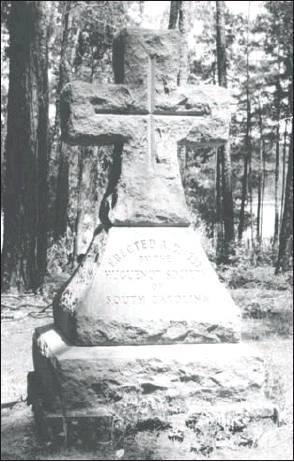The French Reformation blooms along the Seine
There is so much more to say about Notre Dame Cathedral. I don’t take the opportunity to revisit our Huguenot ancestors as often as I should. Among the German and Swiss who settled in Lexington …
This item is available in full to subscribers.
Subscribe to continue reading. Already a subscriber? Sign in
Get 50% of all subscriptions for a limited time. Subscribe today.
Please log in to continueNeed an account?
|
The French Reformation blooms along the Seine
There is so much more to say about Notre Dame Cathedral. I don’t take the opportunity to revisit our Huguenot ancestors as often as I should. Among the German and Swiss who settled in Lexington District were quite a few Frenchmen.
Most Reformation thought came from Paris universities and churches. Its strongest leaders were both lawyers and clergymen. The French Revolution came from the streets and fields of France. The seed of Reformation took root in its universities and religious institutions.
The French and Indian Wars made it risky to linger too long on this group of settlers. They redeemed themselves with vital French aid during the American Revolution. To our west were two settlements with French connections in the Palatinate settlement of Londonborough in Cuffeey Town and Hard Labor Creek area. There is a monument at this site to mark their presence in the South Carolina Upcountry.
Many of these people resettled in Lexington and the Dutch Fork. They did so when the London-borough settlement began to fail. You will see many French names in the South Carolina Midlands and southern Lexington County. Many rose to prominence when the South Carolina College began to form and the new capital of Columbia was laid out.
You will see French names on public buildings and Columbia’s streets.
John Calvin, a Frenchman, was one of the major influences on French emigration to America. Calvin believed the state and church were jurisdictionally separate. Each was ordained by God: one civil, the other ecclesiastical. They believed every human could serve God in every area of his life without being a priest or nun. This developed into the Protestant work ethic me know today.
Calvin was studying theology at the University of Paris when he experienced his conversion to Protestantism. He described it as “God subdued my soul to docility by a sudden conversion.”
Protestant scholars were driven into Europe from England, many into Geneva. It was during this time an English language Bible was produced which had a Calvinistic leaning. It was a dangerous time for Reformers and some met their death by burning at the state.
In May 1535 monasteries were dissolved, mass abolished, and papal authority renounced.
John Calvin died in Geneva of tuberculosis on May 27th, 1564 and is buried in an unmarked grave in Geneva.
Other items that may interest you







Comments
No comments on this item Please log in to comment by clicking here